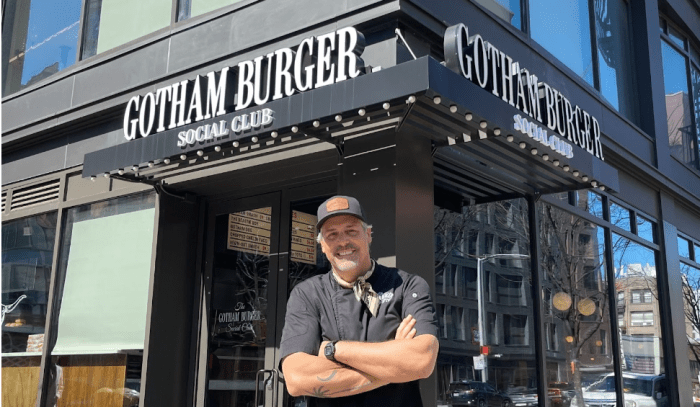Minimum wage increases for restaurant workers have impacted thousands of New Yorkers over the years, but a new study suggests the pay hikes have not negatively affected restaurant revenues.
While the city’s minimum wage for tipped restaurant workers with 11 or more employees rose to $5 an hour in 2013, restaurant sales increased on average 6.6% annually starting in 2014 to reach $22 billion in 2018, according to the report issued by the Center for New York City at the New School and the National Employment Law Project.
“I think the data we compiled is proof that businesses can adapt to a minimum wage and succeed and prosper,” said James Parrot, one of the report’s co-authors.
The study used data from various sources, including the state Department of Labor’s Quarterly Census of Employment and Wages reports. While the minimum wage was increased again to $10 an hour in December, researchers did not analyze data beyond 2018.
The report noted that while the 2013 hike resulted in an increase in menu prices of an average of less than 3 percent annually starting in 2014, those higher costs didn’t seem to deter customers. More tourists have been flocking to the city and hitting up restaurants, and private sector wages for New Yorkers have gone up at an annual pace of 5.4 percent, the report said.
“Using that data set, we saw the New York City restaurant industry has been doing well. It’s been flourishing,” said Parrot.
He said the growth in sales was remarkable as it outpaced 12 other U.S. cities — including Philadelphia, Houston and Atlanta — that didn’t raise minimum wages for restaurant workers during that time period. The number of full-service restaurants in the outer boroughs also jumped by 26 percent since 2013 and roughly 6 percent in Manhattan, he said, while wages for average yearly wages for those businesses went up by roughly 5.5 percent and 4 percent respectively. Altogether, roughly 250,000 New Yorkers worked in a restaurant in 2018, the report said.
Equal pay advocates praised the report for alleviating fears about the impact rising minimum wages would have on the restaurant industry. But Andrew Riggie, the executive director of the New York City Hospitality Alliance, who supports the wage increases, said there is still concern over the industry’s future as the new wage floor combines with rising costs, including rents.
“There are vacant storefronts all over New York City, and we should focus on policies that support existing businesses and getting new businesses to fill the empty spaces,” he said in a statement.
Advocate groups, such as Make the Road New York, which for years pushed for higher minimum wages for restaurant workers, said the report proves the need to go even further.
“Contrary to the doomsday fantasies spun by the restaurant industry when this bill was being negotiated, the sector has only continued to grow,” Deborah Axt, the co-executive director of Make the Road, said in a statement.
The nonprofit is pushing to eliminate the tipped minimum wage, which is lower than the $15 an hour minimum wage for non-restaurant workers. Such a proposal is being studied by the state Dept. of Labor, but the governor’s office has yet to receive its recommendations, according to a spokesman.
Jonathan Bowles, the executive director of the economic think tank Center for an Urban Future, said restaurant profit margins have been thin over the years, but that the report’s findings paint a positive picture for the industry and New York City’s economy overall. He contended that the food industry is the fastest-growing job sector in the city and the minimum wage increases have allowed thousands of New Yorkers a better path to the middle class.
“This is a sector that employs a lot of New Yorkers, it’s important for the vibrancy of the city. We need to make sure we get it right, but at this point, it looks like the minimum wage increase hasn’t stifled this sector,” Bowles said.

















